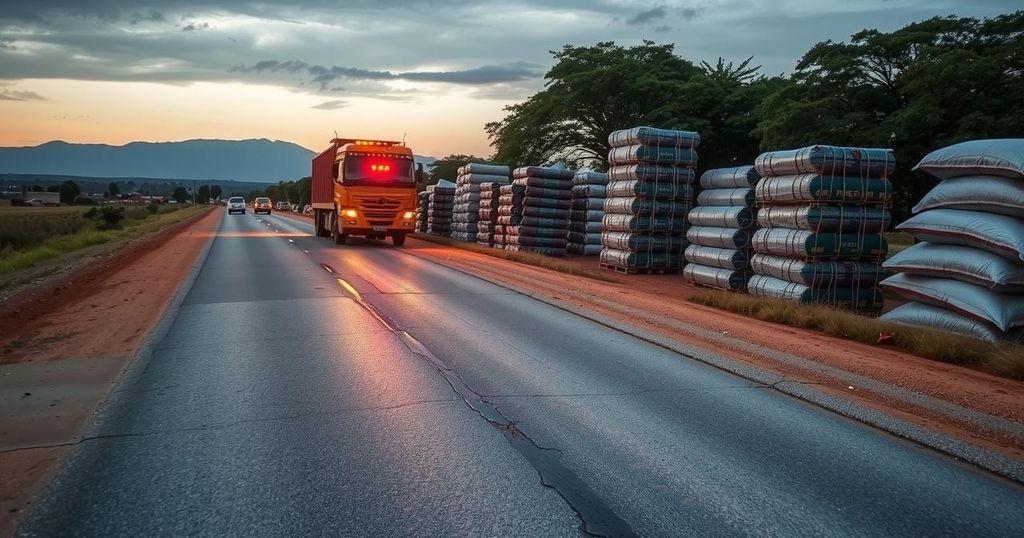South Africa Redirects Trade to Eswatini Amid Mozambique’s Political Crisis

Mozambique faces escalating violence following a disputed election, leading South Africa to divert trade and travel to Eswatini’s Mananga Border. Despite the crisis, calls for dialogue from South Africa and other nations offer a glimmer of hope. Political analysts stress the necessity of regional intervention to maintain peace and stability.
Amidst increasing turmoil following a disputed national election in Mozambique, South Africa has redirected trade and travel away from the Leebombo Border Post towards Eswatini’s Mananga Border Post. This shift arises due to escalating violence and protests in Mozambique, threatening regional stability and economic progress. Michael Masiapato, head of South Africa’s Border Management Authority, emphasized the challenges posed by the sporadic protests, even with military and police deployments along critical transit routes.
The recent electoral victory of presidential candidate Daniel Chapo has exacerbated tensions, resulting in numerous casualties due to unrest. Observers, including political analyst Solomon Mondlane, have noted a hopeful trend with international calls for dialogue, particularly from South Africa and European nations. Mondlane remarked on South Africa’s willingness to mediate discussions between opposing factions in Mozambique, despite previous support for the ruling party, Frelimo.
Levy Ndou, another political analyst, conveyed his optimism regarding regional peace initiatives, stressing the necessity for intervention by the Southern African Development Community (SADC) should the situation worsen. Furthermore, Zimbabwean President Emmerson Mnangagwa, chair of the SADC, has indicated the regional bloc’s readiness to assist Mozambique in regaining stability and securing economic activity.
As Mozambique seeks to navigate this precarious climate, the international community’s engagement remains crucial for fostering dialogue and ensuring ongoing support to stabilize the situation in the region.
The current conditions in Mozambique are a direct consequence of political unrest triggered by a contested electoral process. Following the victory of Daniel Chapo, widespread protests have erupted, leading to significant violence and disruption. The tensions at the southern border with South Africa have compelled authorities to re-route trade and travel, creating adverse effects on economies in the region. The involvement of regional and international entities could play a vital role in defusing the political crisis and restoring order.
In summary, the political instability in Mozambique following a disputed election has necessitated the diversion of trade and travel to neighboring Eswatini. Despite the current unrest, there are encouraging signs of potential dialogue facilitated by South Africa and calls from international observers. Should the situation escalate further, intervention from the SADC may be required to ensure peace and continue economic activity in the region. The commitment to dialogue is essential for restoring stability.
Original Source: www.voanews.com







